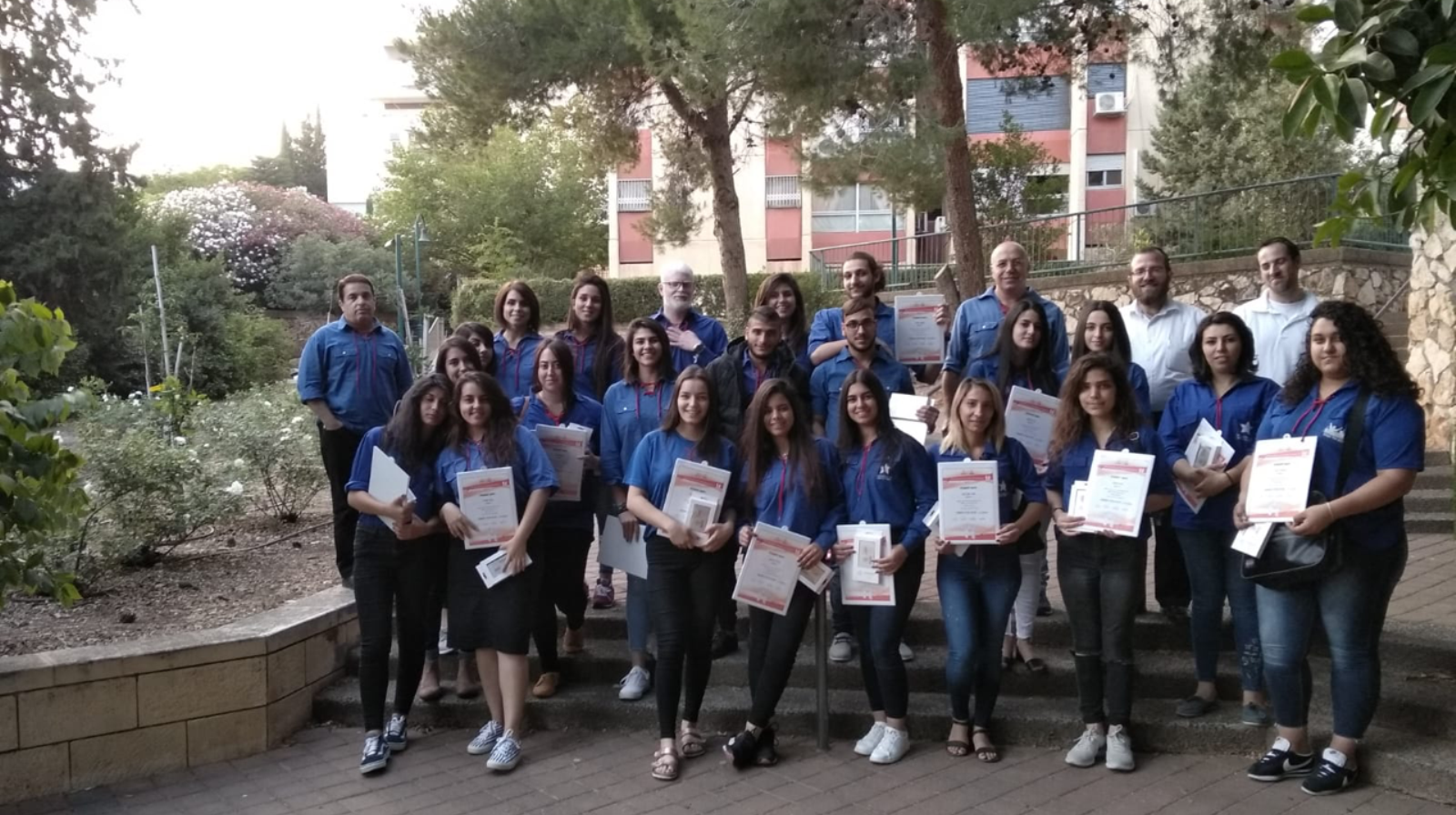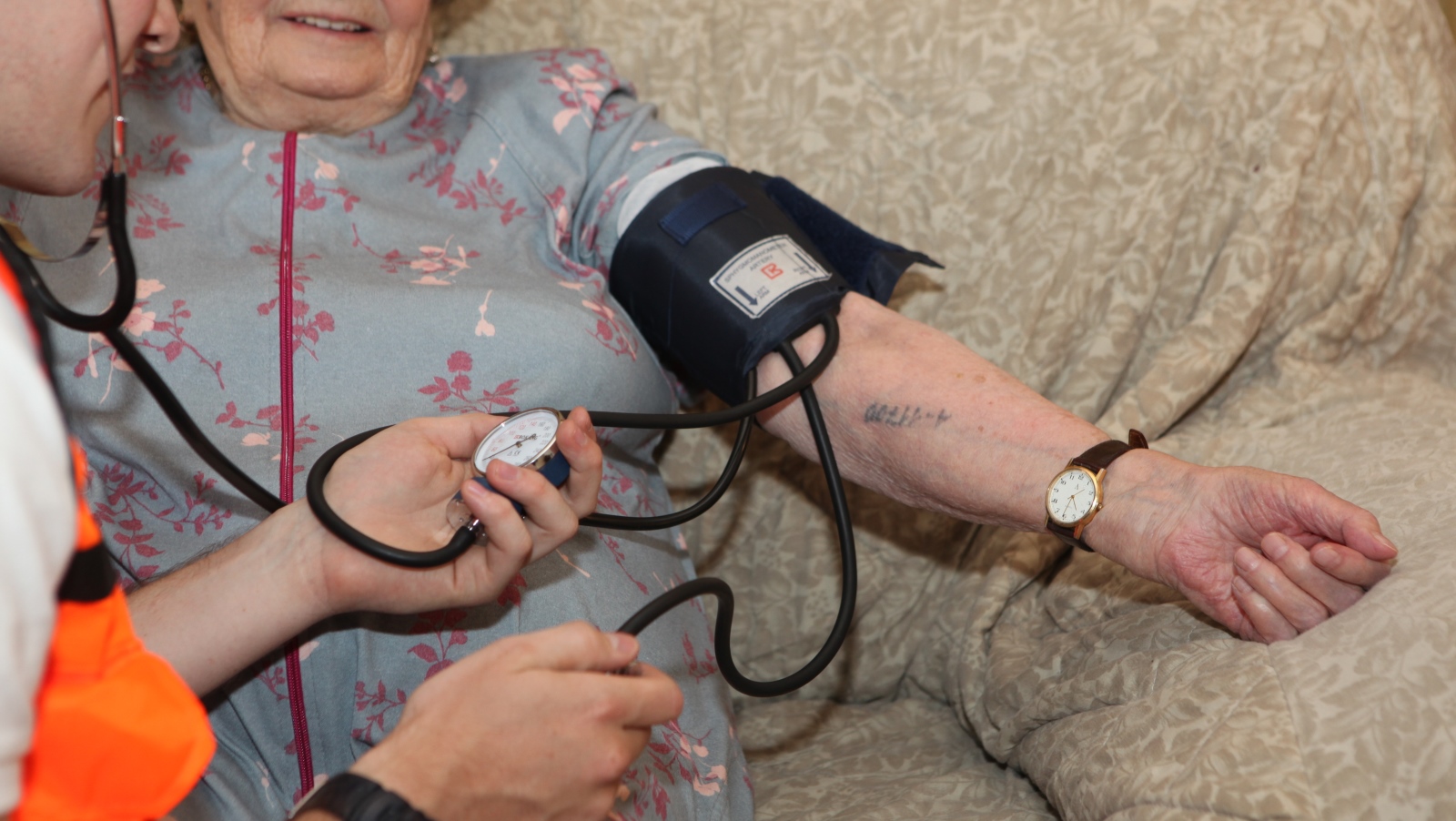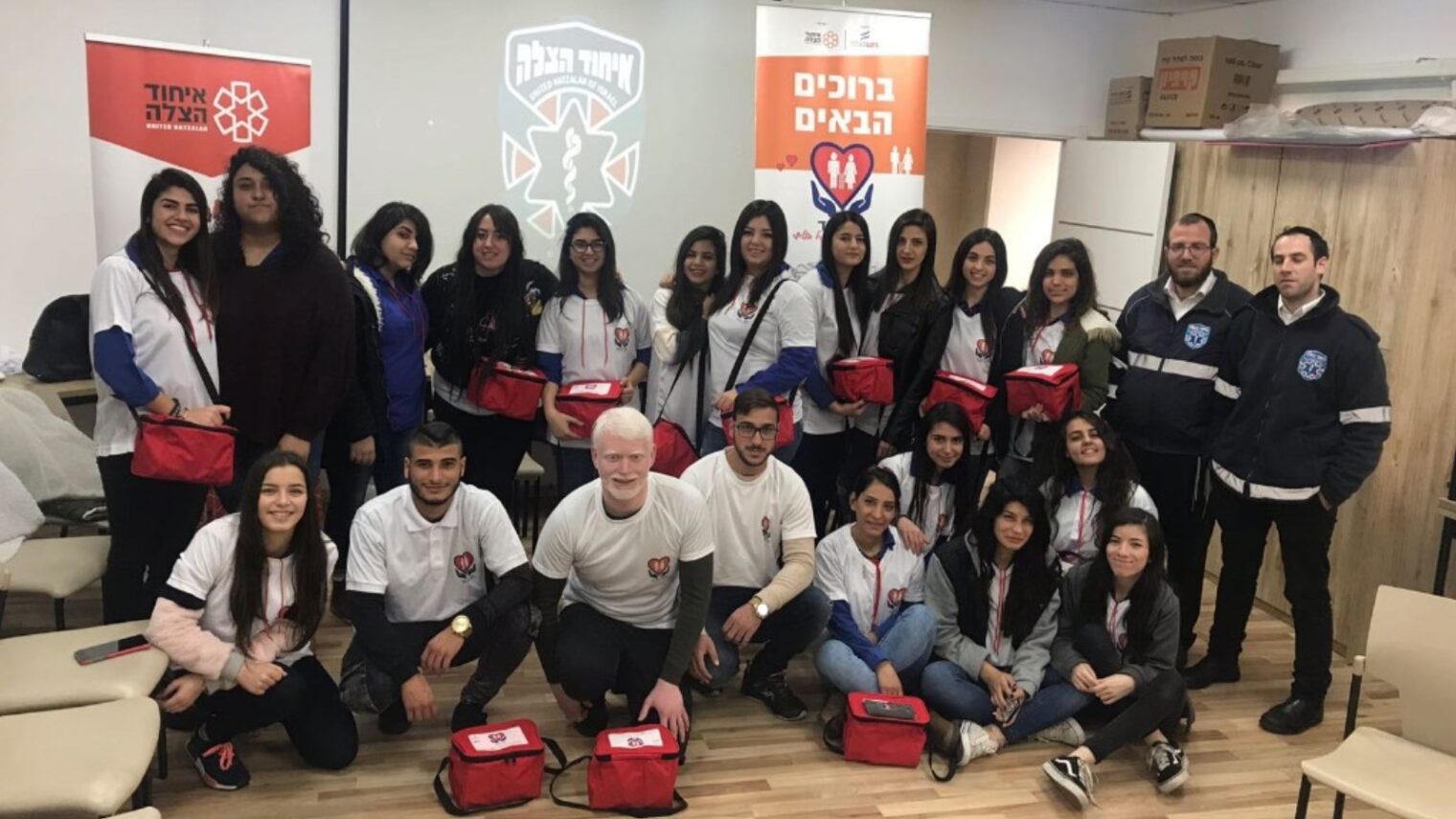Druze volunteer medic Ryan Amasha, 27, regularly visits an elderly man in his village of Usfiya, in Israel’s Carmel region. He checks the 80-year-old’s vital signs once a week, takes him out for coffee, and checks in by phone several times a week.
Amasha’s connection with the elder was fostered through the countrywide Ten Kavod (Give Respect) project spearheaded by voluntary EMS organization United Hatzalah, of which he is a member.
“We want to help to everyone who needs us in the village, and Ten Kavod is another way to do that for older people who don’t have family nearby,” Amasha tells ISRAEL21c.
Earlier this year, Amasha helped organize a Ten Kavod training course for 25 Druze teens doing post-high school National Service in their Carmel region communities. Israel’s Druze citizens comprise an Arabic-speaking ethnic minority in northern towns such as Usfiya and Daliyat al-Carmel.

“I believe that one of the challenges facing Israel today is a lack of connection and understanding between our youth and the golden-years generation,” said Yasmin Kara, spokeswoman for the Druze Division of the General Federation of Working and Studying Youth in Israel (NOAL), which ran the course with United Hatzalah under the sponsorship of the Daliyat al-Carmel Rotary Club.
“Our National Service volunteers, as well as those who defer their IDF service in order to work in the community for a year or two in Daliyat al-Carmel, wanted to take part in the emergency medical responder course and help out in the community,” said Kara.
“However, they did not have enough people in Daliyat al-Carmel alone to open the specialized course. So we expanded the course to other Druze communities in the Carmel region as well,” she said.
The two-month training course was specially designed to be sensitive to the culture of the Druze people.
“Now we have 25 newly trained young members of our community who will strengthen their ties with the older generation and that is a great start. We hope to expand the project in the Druze communities in the Carmel region, as well as other regions such as the Galilee and the Golan,” said Kara.
The young volunteers provide a basic medical check-up for their elderly partners. If they detect a physical or emotional problem, they contact the relevant doctor and family members. If there’s an immediate emergency, of course, their EMT training from United Hatzalah enables them to perform basic lifesaving treatments.
Forming friendships
The visits are about much more than taking blood pressure. The volunteers provide emotional support and check the safety of the senior’s living conditions and make sure they are taking their prescribed medications.
Over time, bonds of friendship often form between the Ten Kavod volunteer and the elder. In addition, the volunteers gain an appreciation for communal work.
“The Ten Kavod project really strengthens our youth,” said Kara.
“It gives them the tools they need to develop as conscientious members of our community as well as an understanding of communal responsibility. It is incredibly important for us as a community to help develop these tools in our youth and provide these services for the elderly.”
According to United Hatzalah international spokesman Raphael Poch, Ten Kavod encompasses approximately 500 volunteers throughout Israel visiting 750 seniors, many of them Holocaust survivors. Training is coordinated with local partners.

“We work with whichever group wants to have the program in their community,” Poch tells ISRAEL21c.
Among other minority populations involved in Ten Kavod are 15 volunteers from the Bnei Menashe community (Jews who have been repatriated to Israel after centuries in the northeast Indian states of Manipur and Mizoram) and 18 from the Kfar Chabad Hassidic community.
Founded in 2012, Ten Kavod expanded with support from the Northern Charitable Foundation and now counts 23 active programs from the far north in Ma’alot to the southern town of Sderot near the Gaza border.
“In the beginning I was anxious and self-conscious,” wrote Ten Kavod volunteer Yossi Eliasaf in Migdal HaEmek. “We introduced ourselves, began to talk … and then, breaking into tears, she told me about her loneliness, about feeling that nobody in the world cares about her.
“I cried with her. I looked her sadness in the eye and I spoke to her. I even made her laugh, and then I remembered ‘measure the vitals,’ but I knew the real measurement was her newly found joy in my presence.”
For more information on Ten Kavod, click here














